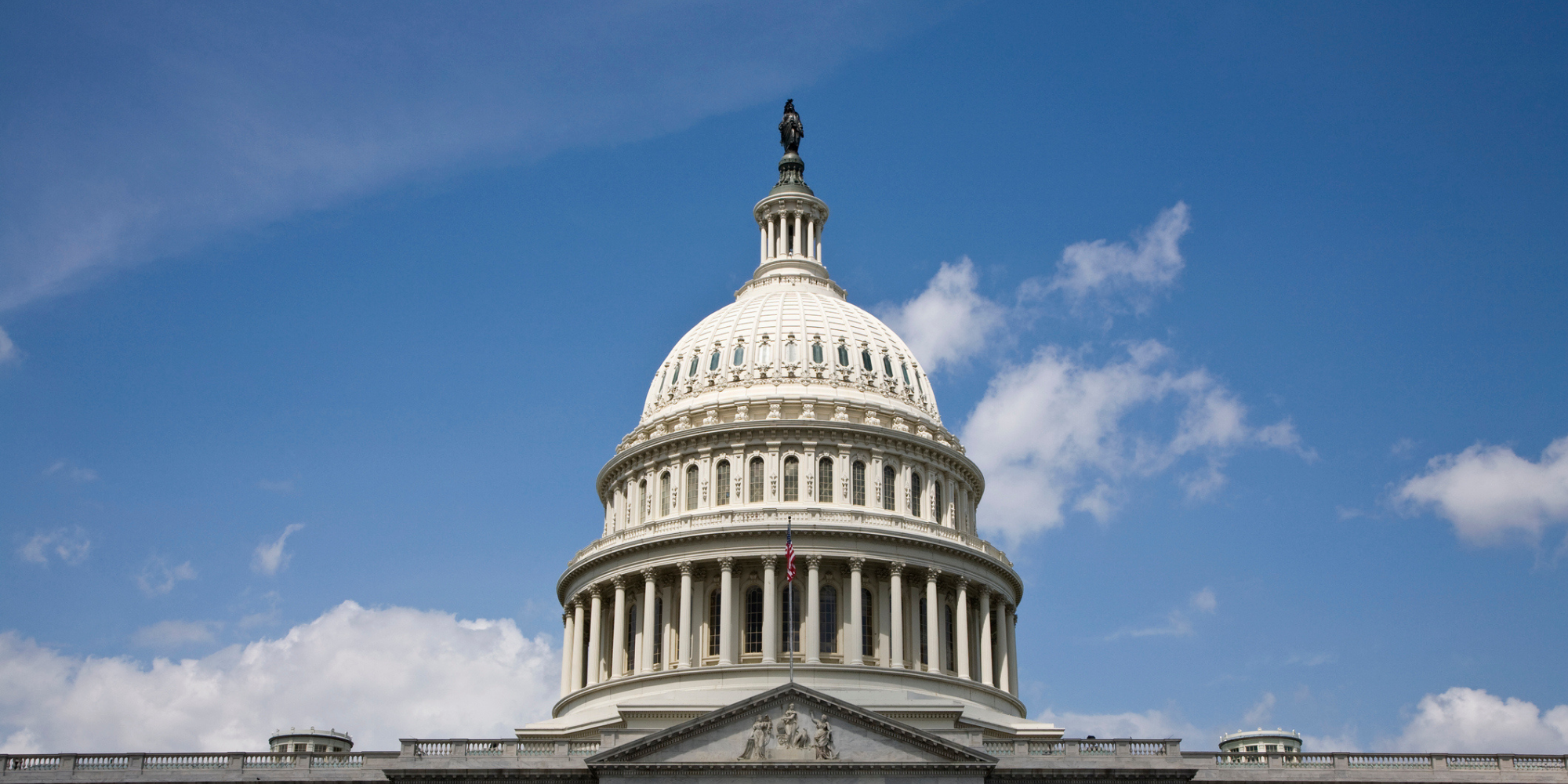As fall ushers its way in with the start of October, in Washington it is also the start of a new federal fiscal year. Congress moved fast in the final days of September to prevent a government shutdown, but they continue to debate the process, policy and timeline of two other significant bills: the infrastructure and budget reconciliation bills. While things can change by the minute in Washington, here is the current status of the key items that have been in play in Washington.
Funding the Federal Government for FY22 Extended Through December 3
On Thursday, September 30, the House and Senate passed a Continuing Resolution (CR) to fund the federal government for FY22 through December 3 and provide more time to negotiate a full budget under reconciliation, the Build Back Better Act. NLC released this statement on the CR passage and advancing the infrastructure vote.
The CR provides short-term appropriations for federal agencies to keep operating, provides supplemental appropriations and extends several expiring programs and authorities. The CR was needed because Congress has not passed all of its appropriations bills. The House has passed 10 out of the 12 bills, while the Senate has passed none.
Congress included $28.6 billion in the CR for natural disaster relief, including Hurricanes Ida, Delta, Zeta, and Laura, wildfires, severe droughts and winter storms. The bill also extends the National Flood Insurance Program through Dec. 3 and provides $6.3 billion in funding to help resettle evacuees from Afghanistan. The funding also includes $1.68 billion for the Department of Housing and Urban Development’s “Refugee and Entrant Assistance” program to support “Operation Allies Welcome” and to help Afghanistan refugee and entrant assistance activities. The grants will be provided to qualified nonprofit organizations to provide culturally and linguistically appropriate services, including wrap-around services during temporary housing and after resettlement, housing assistance, medical assistance, legal assistance, and case management assistance.
Infrastructure Investment and Jobs Act (IIJA) Awaits Vote in House

In August, Speaker Pelosi made an agreement with the House Progressive Caucus to bring the bipartisan Infrastructure Investment and Jobs Act (IIJA) to the floor for a vote by Monday, September 27. That vote was postponed until Thursday, September 30. While a vote did not happen, Speaker Pelosi has held the House floor open—meaning it is still technically Thursday in Congress—in hopes of an agreement and vote on the infrastructure bill today.
The transportation programs that use the Highway Trust Fund (including transit) officially expired last night on September 30, along with the Workforce Innovation and Opportunity Act (WIOA) authorization. The transportation programs lapsing means that about 4,000 U.S. Department of Transportation employees are now furloughed and no reimbursements for federal highway, bridge or transit projects will be able to move forward until Congress reinstates the programs by either: 1) passing the IIJA or 2) passing a short-term transportation authorization in both the House and Senate. While the first is highly preferable, the second is an option. Both would keep disruptions to cities at a minimum, but a longer shut down would cause many ripple effects throughout the transportation systems cities and states own and operate. WIOA has historically operated without authorization without detrimental effects.
On October 1, the House advanced option 2 of passing a short-term extension of authorization until October 31st, and the Senate followed with their approval the following day. While USDOT experienced a temporary furlough of workers, this temporary measure gives Congress time to continue negotiations through October.
Here is a summary of key provisions in the IIJA that are important to cities, towns and villages.
Negotiating the Build Back Better Act Under Budget Reconciliation Continues
The Build Back Better Act is a $3.5 trillion budget package that makes transformative investments at-scale in areas that support families, workers and businesses. It is moving forward under budget reconciliation which is a way to quickly advance high-priority fiscal legislation in Congress; it only needs 50 votes to pass in the Senate. Here is a breakdown of how House committees allocated funding for programs within their jurisdiction. NLC sent a letter to Congressional leaders outlining priorities included in the House version that we hope to retain in a final package.
This bill has not come up for a vote yet because House and Senate leaders and President Biden continue to negotiate on the topline funding level of the bill, along with key provisions to be included. Senate moderates (Manchin (D-WV) and Sinema (D-AZ)) have stated that the topline number of the bill is too high at $3.5 trillion, and Senator Manchin said previously that his topline figure is closer to $1.5 trillion. Progressives in the House and Senate have stated that they will vote against an infrastructure bill if it is not brought to the floor at the same time as a reconciliation bill. The timeframe for a vote on the reconciliation bill is unclear as leadership negotiates between the various factions to achieve an agreed-upon framework for moving forward.
While the IIJA falls short on meeting the workforce training needs in cities, towns and villages across the country, this priority could be advanced in the budget. NLC has long advocated for a strong investment in skills training to ensure that communities have workers trained and ready to build and repair the extensive physical infrastructure systems that will result from this bill. On September 20th, NLC released a new report, Hard-to-Fill Infrastructure Jobs: A Challenge to Building Our Future and confirms this workforce imperative. The IIJA will create or save 15 million jobs over the next 10 years. Based on our analysis, if we do nothing to improve labor market outcomes for infrastructure-related jobs, we can anticipate that as a nation we will struggle to fill at least 4.5 million jobs. Including at-scale workforce funds in the reconciliation package would ensure that IIJA implementation is successful.
Congress Continues to Negotiate on the Debt Limit
The debt limit is the total amount of money that the United States government is authorized to borrow to meet its existing obligations, including Social Security and Medicare benefits, military salaries, interest on the national debt, tax refunds, and other payments. Hitting the debt ceiling could have negative implications for the U.S. economy that could have devastating downstream impacts on municipalities just as they are beginning to recover. According to the U.S. Treasury, if the debt limit is reached, the U.S. government would be unable to make payments on existing legal obligations already approved by Congress and the Administration. Treasury Secretary Janey Yellen has said the U.S will be unable to make payments starting October 18 if Congress fails to raise the current debt limit.
A provision to address the approaching debt limit of the United States was removed from the continuing resolution to gain the support of Senate Republicans for the temporary spending bill that prevented a government shutdown on Thursday. Following the decision to leave the debt limit out of the temporary spending bill, the House passed a new bill that would waive any debt limit on the United States through Dec. 16, 2022. The Senate could vote as early as next week on the House bill. NLC released a statement Urging Members of Congress to Cooperate on Fundamental Government Obligations Toward Federal Debt.
Take Action
As the process on the IIJA and budget reconciliation bills moves forward, local leaders can take action to encourage Congress to vote ‘yes’ on the IIJA and ensure that city priorities, including workforce development and training, are included in the reconciliation bill. Your voice can make a difference! Click the button to send a letter to your members of Congress.

